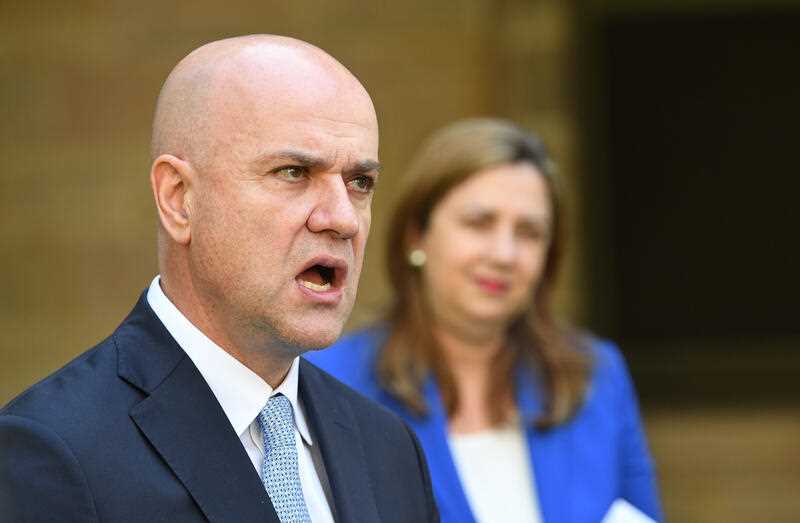Queensland’s COVID-19 pandemic public health measures are no longer fit for purpose and improving transparency will help protect public confidence in decision makers, a parliamentary committee has been told.
A bill to extend “essential public health measures” in Queensland from April 30 to October 31 has been introduced to parliament and came under scrutiny at a committee hearing on Monday.
Under the bill, the special powers can also be ended sooner if the health minister declares an end to the public health emergency.
But the state’s Human Rights Commission does not support the extension, telling the committee the laws “must be replaced with more transparent, accountable and human rights compatible legislation”.
Much of Queensland’s success in handling the pandemic has relied on the public’s trust in decision making, Human Rights Commissioner Scott McDougall told the hearing on Monday.
“They’ve accepted extraordinary restrictions on their human rights,” he said.
Decisions made to address the next COVID-19 waves will be tough, and the public’s appetite to forgo their rights will be tested, he says.
“It’s really important that there is an effective transparent model in place that maintains public confidence in public health decision making.”
The bill seeks to extend temporary amendments to the Public Health Act that allow Chief Health Officer John Gerrard to issue directions on restrictions of movement and gatherings, quarantine requirements and physical distancing.
The commission supports “pandemic specific” legislation passed in Victoria that makes the premier and health minister responsible for declaring pandemics and making health orders.
In doing so, the health minister must consult with the chief health officer, but may also take advice from other parties such as the Human Rights Commission, Mr McDougall said.
Advice given by the CHO, a statement of reasons and a statement of compatibility with human rights must be provided.
“That is a really effective and open, transparent model,” he said.
As Queensland enters a “living with COVID-19” phase, the bill notes “some restrictions may still need to be maintained or activated” including masks and vaccination requirements in high risk settings.
“Ongoing COVID-19 responses are likely to be driven by local epidemiological conditions, vaccination rates and health system capacity, as well as any measures needed to respond to the emergence of vaccine resistant variants or other unforeseen circumstances,” explanatory notes state.
The committee is due to table its report on March 25.
By Nick Gibbs for AAP.
Canberra Daily would love to hear from you about a story idea in the Canberra and surrounding region. Click here to submit a news tip.



